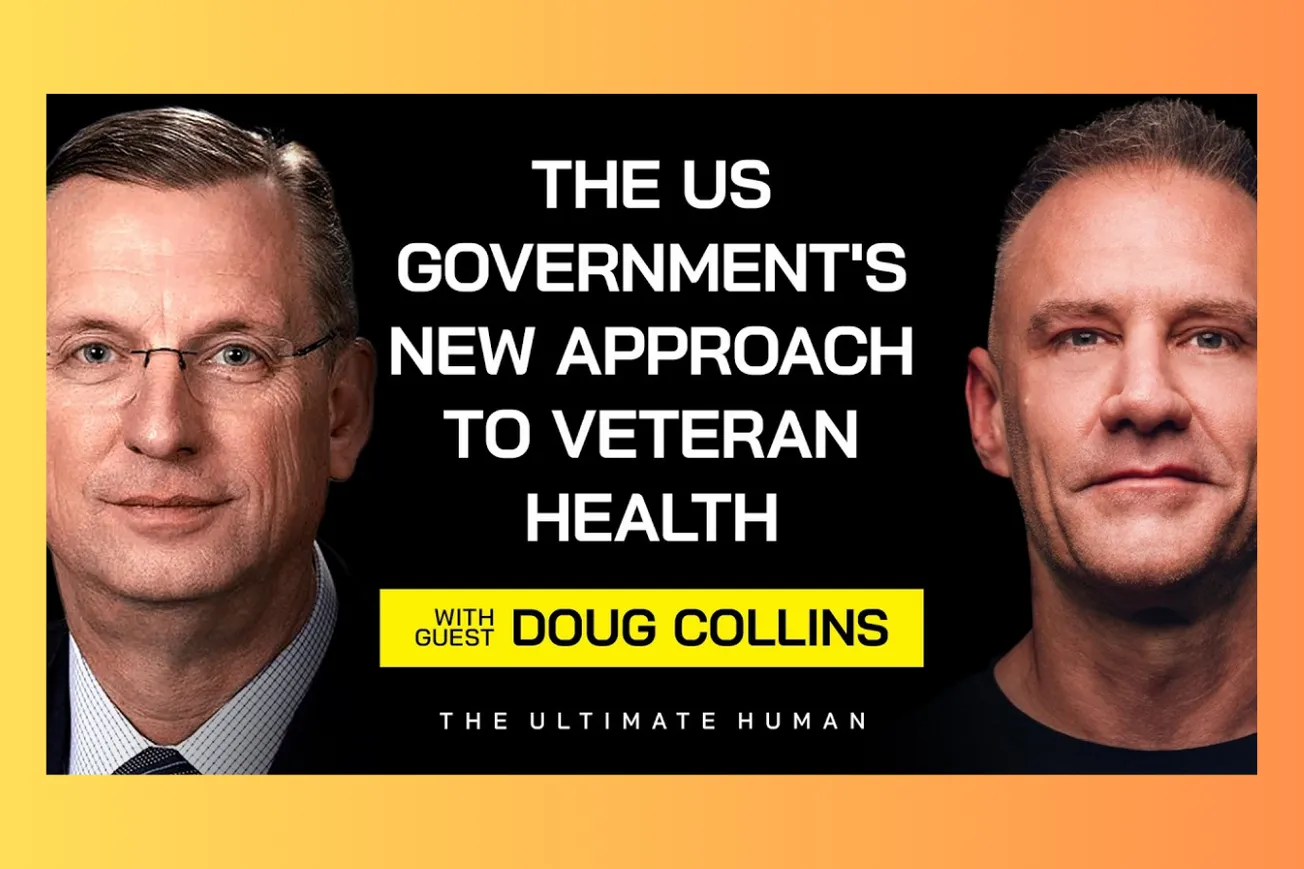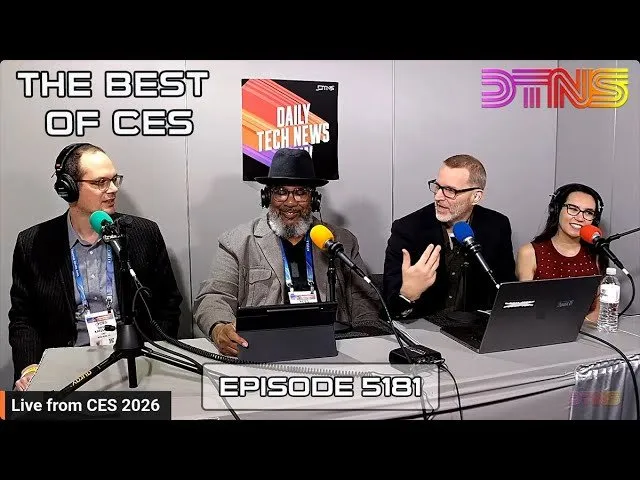Table of Contents
How VA Secretary Doug Collins is revolutionizing veteran healthcare by embracing alternative therapies, spiritual wellness, and personalized care after decades of failed conventional approaches.
Key Takeaways
- The VA is completely overhauling its healthcare approach after spending billions without reducing veteran suicide rates from 17-22 daily deaths since 2008
- Alternative therapies including peptides, dietary interventions, and psychedelics are being integrated into veteran care for the first time in VA history
- Secretary Collins advocates for "thinking outside the box" with open-minded approaches rather than rigid institutional protocols that have consistently failed veterans
- The Make America Healthy Again movement represents both a health revolution and spiritual awakening, with Gen Z leading unprecedented returns to faith-based wellness
- Community care partnerships allow veterans to access private sector treatments when VA facilities cannot provide timely or appropriate care through expanded options
- The "best medical interest" standard eliminates bureaucratic delays, allowing doctors to make immediate treatment decisions when veterans are ready for help
- Teen depression rates doubled from 2009-2019, with one in four teenage girls experiencing major depressive episodes requiring completely new therapeutic approaches
- Collins emphasizes that every life has value and alternative methods don't need to work for everyone—if they save one veteran, they're worthwhile
- The VA's 470,000 employees are being retrained to abandon "that's how we've always done it" mentality in favor of innovative, personalized care approaches
The Spiritual Revolution Driving Healthcare Transformation
Secretary Doug Collins brings a unique perspective to veteran healthcare transformation, combining military service, congressional experience, and chaplain background. His approach recognizes that true healing requires addressing spiritual, mental, and physical health simultaneously.
- The Make America Healthy Again movement represents both a health revolution and spiritual awakening, with authentic faith-based approaches gaining unprecedented traction among younger generations
- Gen Z is experiencing the highest growth percentage in faith-based lifestyle choices, seeking authenticity over institutional messaging and government dependency models
- Blue zone research confirms that communities with strong faith traditions consistently demonstrate superior longevity outcomes, primarily through delayed gratification and purposeful living
- Collins emphasizes that contentment—being part of a loving, purposeful community—provides the foundation for all other health improvements and recovery processes
- The integration of chaplain services with medical care acknowledges that moral injury and spiritual trauma often underlie physical and mental health crises in veteran populations
- President Trump's support for this holistic approach stems from his desire to see future generations grow up healthier than previous ones
This spiritual dimension addresses root causes rather than symptoms. Collins notes that veterans experiencing suicidal ideation often describe feeling like "all the light ceases to exist"—a fundamentally spiritual crisis requiring spiritual solutions alongside medical interventions.
The Veteran Suicide Crisis: Why Traditional Approaches Have Failed
Despite decades of awareness campaigns and billions in funding, veteran suicide rates remain stubbornly fixed at 17-22 deaths daily since 2008. This staggering statistic reveals fundamental flaws in conventional approaches to veteran mental health care.
- Traditional suicide prevention programs focus on naming and categorizing problems rather than developing effective interventions for veterans in crisis situations
- Bureaucratic delays prevent immediate intervention when veterans are finally ready to seek help, often missing critical windows for successful treatment engagement
- Cookie-cutter approaches ignore individual trauma histories, moral injuries, and unique circumstances that brought each veteran to their crisis point
- The VA's historical reluctance to embrace alternative therapies has limited treatment options for veterans who don't respond to conventional pharmaceutical interventions
- Teen depression rates doubling from 2009-2019 indicate systemic mental health failures extending beyond veteran populations into broader American society
- One in four teenage girls experienced major depressive episodes in 2022, with three million high school students considering suicide in 2023
Collins describes sitting with veterans who have reached "the end of their rope," recognizing that conventional responses fall far short when someone sees only "one light, one answer" to their suffering. This crisis demands revolutionary approaches rather than incremental improvements to failed systems.
Dismantling the "That's How We've Always Done It" Mentality
The VA's transformation requires completely abandoning institutional inertia that has prevented innovation for decades. Collins has adopted a deliberately disruptive approach to challenge every aspect of traditional veteran care delivery.
- Collins asks "why" repeatedly like a toddler, forcing employees to justify procedures that often lack rational basis beyond institutional tradition
- The "box is no longer square at the VA"—rigid protocols are being replaced with flexible, individualized approaches to veteran care
- Alternative methods don't need to work for everyone; if they save one veteran's life, they justify implementation regardless of traditional medical establishment resistance
- Community care partnerships expand treatment options beyond VA facilities, allowing veterans to access private sector innovations and specialized treatments
- The Dole Act's "best medical interest" standard eliminates multiple approval layers, empowering doctors to make immediate treatment decisions when veterans present for care
- Strategic thinking combines with tactical implementation to maximize limited time for making meaningful differences in veteran outcomes
This cultural transformation faces resistance from the VA's 470,000 employees, many deeply entrenched in traditional approaches. However, Collins emphasizes that questioning long-standing practices isn't about criticizing people but about improving systems that have demonstrably failed veterans.
Integrating Alternative Therapies Into Veteran Care
The VA is pioneering the integration of previously excluded alternative therapies, recognizing that conventional approaches have left too many veterans behind. This represents the most significant shift in VA healthcare philosophy in decades.
- Peptide therapies are being evaluated for their potential to address underlying physiological imbalances contributing to veteran mental health and physical recovery challenges
- Dietary interventions receive equal consideration with pharmaceutical approaches, acknowledging nutrition's fundamental role in mental health, cognitive function, and overall veteran wellness
- Psychedelic-assisted therapies are being explored for their documented effectiveness in treating PTSD, depression, and other conditions prevalent in veteran populations
- Lifestyle modifications including exercise protocols, sleep optimization, and stress management receive institutional support rather than being dismissed as supplementary to "real" medicine
- Spiritual care integration acknowledges that moral injury and existential trauma require faith-based interventions alongside conventional psychological and psychiatric treatments
- Community partnerships allow veterans to access cutting-edge treatments not yet available within traditional VA facilities, expanding options exponentially
Collins emphasizes that these alternatives complement rather than replace effective conventional treatments. The goal is expanding the toolkit available to help veterans rather than promoting ideology over evidence-based care.
Community Care Revolution: Public-Private Partnership Innovation
The Mission Act's community care provisions have opened unprecedented opportunities for veteran care innovation through strategic public-private partnerships. These arrangements bypass traditional VA limitations while maintaining quality oversight.
- Veterans can access private sector treatments when VA facilities cannot provide timely or appropriate care, eliminating artificial barriers between public and private healthcare systems
- Specialized clinics focusing on alternative therapies can contract with the VA to serve veterans, bringing innovative treatments into the veteran care network
- The "best medical interest" standard allows immediate referrals to community providers when veterans are ready for treatment, preventing bureaucratic delays that historically derail recovery
- Private sector efficiency combines with VA oversight to ensure veterans receive both innovative care and appropriate protection from predatory or ineffective treatments
- Doctors can seek second opinions and alternative approaches without navigating complex approval processes that historically discouraged creative treatment planning
- Geographic limitations are overcome by allowing veterans to access care wherever appropriate providers exist, rather than being limited to nearby VA facilities
This hybrid approach acknowledges that the VA cannot and should not attempt to provide every possible treatment in-house. Strategic partnerships leverage America's entire healthcare ecosystem for veteran benefit.
The Crisis Window: Capturing Veterans Ready for Change
Collins emphasizes the critical importance of immediate intervention when veterans finally decide to seek help. These decisive moments require rapid response rather than bureaucratic processing that has historically lost countless opportunities for successful intervention.
- Veterans experiencing crisis often reach a singular moment of readiness for change, representing a narrow window of opportunity that traditional systems frequently miss
- A 35-40 year old veteran who has lost family, fortune, and purpose due to addiction or mental health issues represents enormous potential if help is immediately available
- Bureaucratic delays between initial contact and actual treatment allow despair to reassert itself, often preventing veterans from following through with treatment engagement
- The "best medical interest" standard empowers immediate treatment decisions rather than requiring veterans to navigate complex approval processes during their most vulnerable moments
- Community care partnerships ensure that appropriate treatment is available immediately rather than forcing veterans onto waiting lists when they're finally ready for help
- Every veteran life has infinite value regardless of background, circumstances, or previous treatment failures, justifying extraordinary efforts to capture these critical intervention moments
Collins's personal experience counseling suicidal veterans informs his understanding that these moments of readiness cannot be scheduled or bureaucratically managed. The system must respond immediately when veterans present themselves for help.
Long-Term Vision: Fulfilling America's Promise to Veterans
Collins's ultimate goal transcends healthcare delivery to encompass fundamental transformation of the relationship between America and its veterans. This vision requires systematic change across every aspect of veteran services.
- Veterans should walk into VA facilities knowing they will receive efficient, cost-effective, and genuinely effective care rather than bureaucratic processing and institutional indifference
- The promise made when veterans "raised that right hand" and put the flag on their shoulder must be honored through actual delivery rather than empty rhetoric
- Earned care represents a sacred trust that cannot be compromised by budgetary constraints, political considerations, or institutional convenience factors
- Veterans deserve to say "I have got what the country promised me" based on actual experience rather than hope or political promises
- The transformation requires valuing veterans for both their service and their ongoing humanity, recognizing their continued contributions to American society
- Success will be measured by veteran satisfaction and outcomes rather than internal metrics that may not correlate with actual veteran welfare
This vision requires sustained commitment beyond any single administration or political cycle, embedding veteran care excellence into America's permanent institutional fabric.
Common Questions
Q: What specific alternative therapies is the VA now considering for veterans? A: Peptides, dietary interventions, psychedelics, lifestyle modifications, and spiritually-integrated care are being evaluated alongside traditional treatments for veteran mental health and recovery.
Q: How does the community care program expand veteran treatment options? A: Veterans can access private sector treatments when VA facilities cannot provide timely care, eliminating artificial barriers between public and private healthcare systems.
Q: Why have traditional veteran suicide prevention programs failed despite billions in spending? A: Programs focused on awareness and naming problems rather than developing effective interventions, while bureaucratic delays prevented immediate help when veterans were ready for treatment.
Q: What is the "best medical interest" standard and how does it help veterans? A: This standard eliminates multiple approval layers, allowing doctors to make immediate treatment decisions and seek alternative approaches without bureaucratic delays.
Q: How does spiritual care integration address veteran mental health issues? A: Moral injury and existential trauma often underlie veteran mental health crises, requiring faith-based interventions alongside conventional psychological and psychiatric treatments.
Collins's revolutionary approach to veteran healthcare represents the most significant transformation in VA history. By abandoning failed traditional approaches and embracing innovative alternatives, the VA is finally positioned to fulfill America's promise to those who served.
The integration of spiritual, mental, and physical health care acknowledges the complex reality of veteran suffering while providing hope through expanded treatment options and immediate intervention capabilities.





